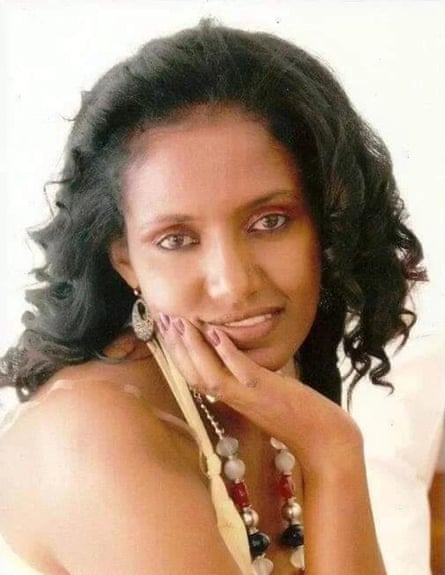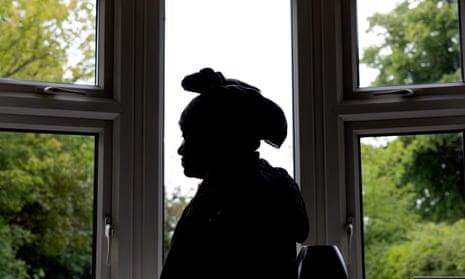An Ethiopian woman who was denied potentially life-saving cancer treatment for six weeks amid confusion about whether she should be charged by the NHS has died aged 39.
Kelemua Mulat, who had advanced breast cancer, was refused chemotherapy last year after Home Office and NHS officials decided that she was not eligible for free care.
Mulat, a mother of one, was eventually treated by the internationally renowned Christie hospital in Manchester after its doctors expressed concern and said her need was “immediately necessary”, which is permitted treatment under the rules.
Her lawyer, Jeremy Bloom, said that her death showed the “real and sickening human cost” of the government’s hostile environment strategy, which forces the NHS to impose upfront charges on migrants deemed ineligible for free care.
Bloom, of the law firm Duncan Lewis, said Mulat “suffered unnecessarily as the result of a flawed policy”, which “seek[s] to make hospital staff act as immigration officers, a job for which they are ill-prepared and ill-suited”.
Mulat is one of hundreds of patients who have been denied treatment for serious health problems under the policy, which is strongly opposed by Britain’s doctors.
In Mulat’s case, consultants at Christie hospital believed that chemotherapy was “immediately necessary” in April last year to treat the metastatic breast cancer that had spread to her abdomen and spine.
However, she was refused treatment for six weeks due to the way her asylum claim had been processed by the Home Office. She eventually began chemotherapy on 7 June after her case was highlighted by the Guardian.
After she was initially turned away from the Christie, Mulat was prescribed a “stopgap treatment” of a daily Letrozole tablet and a monthly Zoladex injection. For this she was invoiced £3,379, causing significant distress.
Bloom said Mulat should have been automatically eligible for treatment after doctors deemed it “immediately urgent and necessary”. Yet despite her illness and vulnerability, he said she was “forced to fight a legal battle to secure the treatment that she needed and to have a bill cancelled that may have affected any future applications for leave”.

He added: “Ms Mulat’s additional pain and suffering may have been avoided if the Home Office had provided accurate information to the hospital about her immigration status – or better yet, if hospitals were not compelled to carry out this discriminatory and unjust policy.”
Mulat had no family in Britain but was cared for by her close friend and legal next-of-kin, Sara Jackson, who blamed the government’s hostile environment policy for her death.
“The Home Office, they killed her – they really did,” said Jackson, an interpreter for Ethiopians living in Britain. “This girl needed help at that time. I love this country and my kids were born in this country but the way this happened – the way they stopped her treatment – it has to be highlighted.”
In June last year, Mulat told the Guardian she felt she had been “left to die” by the government. Her cancer caused crippling pain throughout her body and she was unable to retain any food or water without struggle.
Jackson said her condition deteriorated significantly in recent weeks and she was moved to a hospice in Salford, where she died on 8 September.
Mulat’s friends have launched a crowdfunding campaign to grant her dying wish for her body to be flown back to her mother and daughter in Ethiopia. The cost for the repatriation is £4,500, said Jackson, adding that any additional money would be sent to Mulat’s daughter and used for a service at the Ethiopian orthodox church in Manchester.
Anna Jones, the co-founder of charity RefuAid, which supported Mulat, said: “It took six weeks of advocacy and navigating bureaucracy within the Home Office to have Kelemua’s care at the Christie hospital permitted.
“Six weeks of chemotherapy and treatment is likely to have made some difference to her prognosis. This is yet another example of how the unnecessary bureaucracy within the Home Office and the current government’s policy of creating a hostile environment is causing needless deaths.”
Mulat arrived in Britain in July 2015, five years after fleeing Ethiopia when her partner, the father of her daughter, was reputedly shot dead by pro-government forces after he took part in protests.
She was diagnosed with breast cancer in 2013 in Greece, where she underwent treatment paid for by the United Nations refugee agency. Her first asylum claim in Britain was rejected in August 2016 and her section 4 asylum support, which includes NHS healthcare and a £35.39 weekly support allowance, was stopped in February this year.
Mulat was later granted limited leave to stay in the UK on the grounds of her private life when the Home Office became aware of her deteriorating health.
She had been surviving on food parcels, donations from nurses at the Christie and Wythenshawe hospitals and supermarket vouchers from the British Red Cross destitution service, while living in Home Office accommodation in Salford with four other female asylum seekers.
On 25 April Mulat’s lawyers submitted new evidence arguing that she would face political imprisonment if she were forced to return to Ethiopia.
However, the Home Office classified the evidence as “further submissions” instead of a fresh application: a small but crucial difference which meant that, in the eyes of government bureaucrats, Mulat was not entitled to free healthcare. Had her evidence been seen as a fresh asylum claim, she would have been allowed chemotherapy immediately.
Mulat also reapplied for section 4 support on 25 April, which would have entitled her to free healthcare, but this was not granted until six weeks later – a day after the Guardian contacted the Home Office.
A Home Office spokesman said: “Our thoughts and condolences are with the family and friends of Ms Mulat. We are committed to ensuring that asylum seekers who would otherwise be destitute are supported while applications are considered, including having free access to NHS healthcare.”
